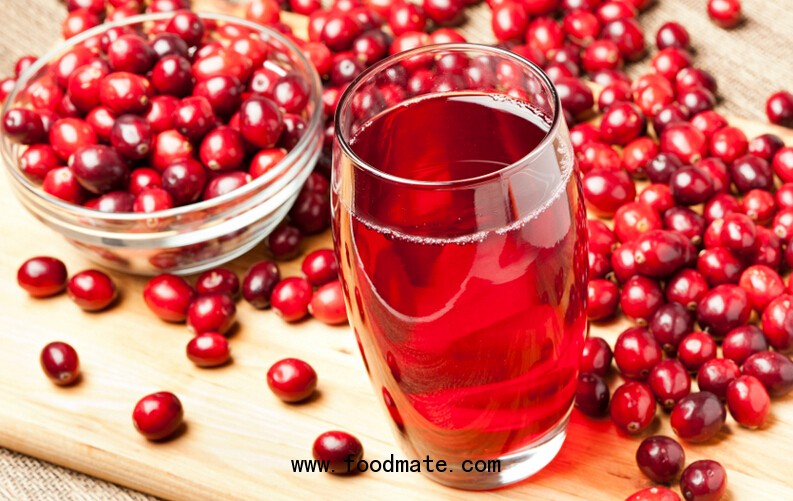
The article titled “Cranberry Juice Consumption Lowers Markers of Cardiometabolic Risk, Including Blood Pressure and Circulating C-Reactive Protein, Triglyceride, and Glucose Concentrations in Adults,” noted that cranberries provide a rich source polyphenols, a protective compound that support the human body’s natural defenses and help it achieve a balanced lifestyle to improve health, according to a press release.
To discover the extent to which polyphenol-rich cranberries can bolster whole-body health, researchers from the U.S. Department of Agriculture (USDA) provided eight weeks’ worth of meals to 56 healthy adult volunteers (average age of 50 years). One group drank 8-ounces of low-calorie cranberry juice twice daily — 16 ounces total. Meanwhile, the other group drank a placebo beverage with a similar color and flavor.
“At the start and end of the experiment, the researchers measured things like blood pressure, blood sugar levels, blood lipids, as well as C-reactive protein, a marker of inflammation,” explained Christina Khoo, director of research sciences at Lakeville-Middleboro, Mass.-based Ocean Spray, in a statement. “All of these measurements come together to tell a story. The worse off these numbers are in an individual, the more likely he or she will face a health condition like diabetes, heart disease or stroke in the future.”
Individuals drinking two glasses of low-calorie cranberry juice a day improved across all these measures. It’s a change that adds up and could be associated with a 10 percent lower risk of heart disease and a 15 percent lower risk of stroke, based on the article “Blood Pressure, Stroke, and Coronary Heart Disease. Part 2, Short-Term Reductions in Blood Pressure: Overview of Randomised Drug Trials in Their Epidemiological Context” published in Lancet in 1990. Of note, the reductions in blood pressure numbers alone matched those achieved from the Dietary Approaches to Stop Hypertension (DASH) diet, according to “What Is the DASH Diet?” The DASH Diet Eating Plan.
“These findings suggest that polyphenols help to protect our bodies, and may be adept at keeping a large number of ailments at bay,” Khoo said. “Luckily for us, a rich source of polyphenols is only a glass of cranberry juice away. Among the commonly consumed fruits in our diets, cranberries boast some of the highest levels of polyphenols — more than apples, blueberries, grapes or cherries.”
In addition to the cardiometobolic effects of polyphenols, cranberries also contain unique proanthocyanidins (PACs) that may help prevent certain bacteria from sticking inside the body, Ocean Spray added.





